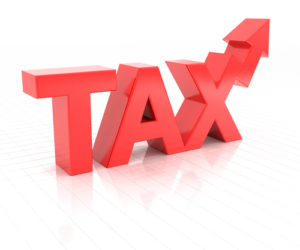Navigating the Complexities of U.S. Taxation: A Deep Dive into Reform and the Future

At Extreme Investor Network, we believe that understanding economics is fundamental to achieving financial independence and growth. One pressing issue that encapsulates the intersections of economics, governance, and personal finance is the ever-complex U.S. tax code. As we look ahead, it appears there is potential for significant changes in this realm, spurred by influential figures like Elon Musk and Vivek Ramaswamy under the newly formed Department of Government Efficiency (DOGE).
The Call for Simplicity in Taxation
The complexity of the current tax system is alarming. In just seven decades, the words in the U.S. Tax Code have skyrocketed from 1.5 million to over 16 million. This daunting complexity leads Americans to collectively spend an estimated 6.5 billion hours annually on tax preparation. DOGE has publicly stated a commitment to simplifying this convoluted system, yet the path forward remains fraught with challenges.
Former President Donald Trump has also made clear his desire to overhaul and simplify our "broken tax code." With the IRS aggressively scrutinizing taxpayers under the Biden-Harris administration—often seen as criminalizing the honest efforts of everyday Americans—there is a growing consensus that reform is not just necessary, but urgent.
The App Dilemma
One suggestion from DOGE is the development of a user-friendly app to streamline tax payments. While technology can undoubtedly enhance accessibility, the fundamental issues with the tax code must also be addressed. How can an app simplify processes when the underlying laws remain tangled in layers of complexity?
Interestingly, this news has already impacted the stocks of companies like TurboTax and H&R Block, which saw substantial declines following the announcement, hinting at the potential disruptions this new approach could cause in the tax preparation industry.

Beyond Federal Taxes: Local and State Concerns
Taxation is not merely a federal issue; state and local taxes have been climbing at an alarming rate. The rapid escalation of government revenues as a percentage of Gross Domestic Product (GDP) is a crucial barometer for gauging our collective quality of life. As government spending continues to increase, it becomes increasingly unrealistic to expect citizens to sustain this financial burden.
Many might be surprised to learn that the Founding Fathers intentionally prohibited direct taxation, such as income tax, opting instead for a system that promoted economic liberty. Yet, in our modern era, we find ourselves grappling with an ever-expanding tax system that threatens to stifle that very freedom.
The Case for Stability in Taxation
One of the critical components that proponents of tax reform agree upon is the need for stability in tax rates. Just as no one would agree to rent an apartment with a constantly fluctuating rate, businesses require certainty when planning investments, hiring, and expansion.
Countries that have successfully attracted capital often do so by guaranteeing stable tax rates over extended periods—ranging from 20 to 40 years. Such guarantees enable businesses to plan confidently without the fear of sudden, drastic changes to their operating costs.
The Path to Economic Freedom
The trajectory of direct taxation has invariably led to increased regulatory burdens, which constrains freedom and liberty. At Extreme Investor Network, we understand that true economic freedom is an indispensable aspect of liberty. Without comprehensive tax reform that simplifies the code and stabilizes rates, we risk stifling innovation and job creation in America.
In conclusion, as we ponder the future of taxation in the U.S., it is imperative that we advocate for a system that promotes economic freedom and clarity. The voices calling for reform are growing louder, and with committed efforts from influential leaders, we hope to witness a more equitable and efficient taxation system that prioritizes the well-being of its citizens.
Stay tuned to Extreme Investor Network for ongoing insights into economic changes and the vital issues that affect your financial landscape. Our commitment to empowering investors with knowledge and strategic foresight ensures that you will remain informed and ready to navigate this complex financial environment.

